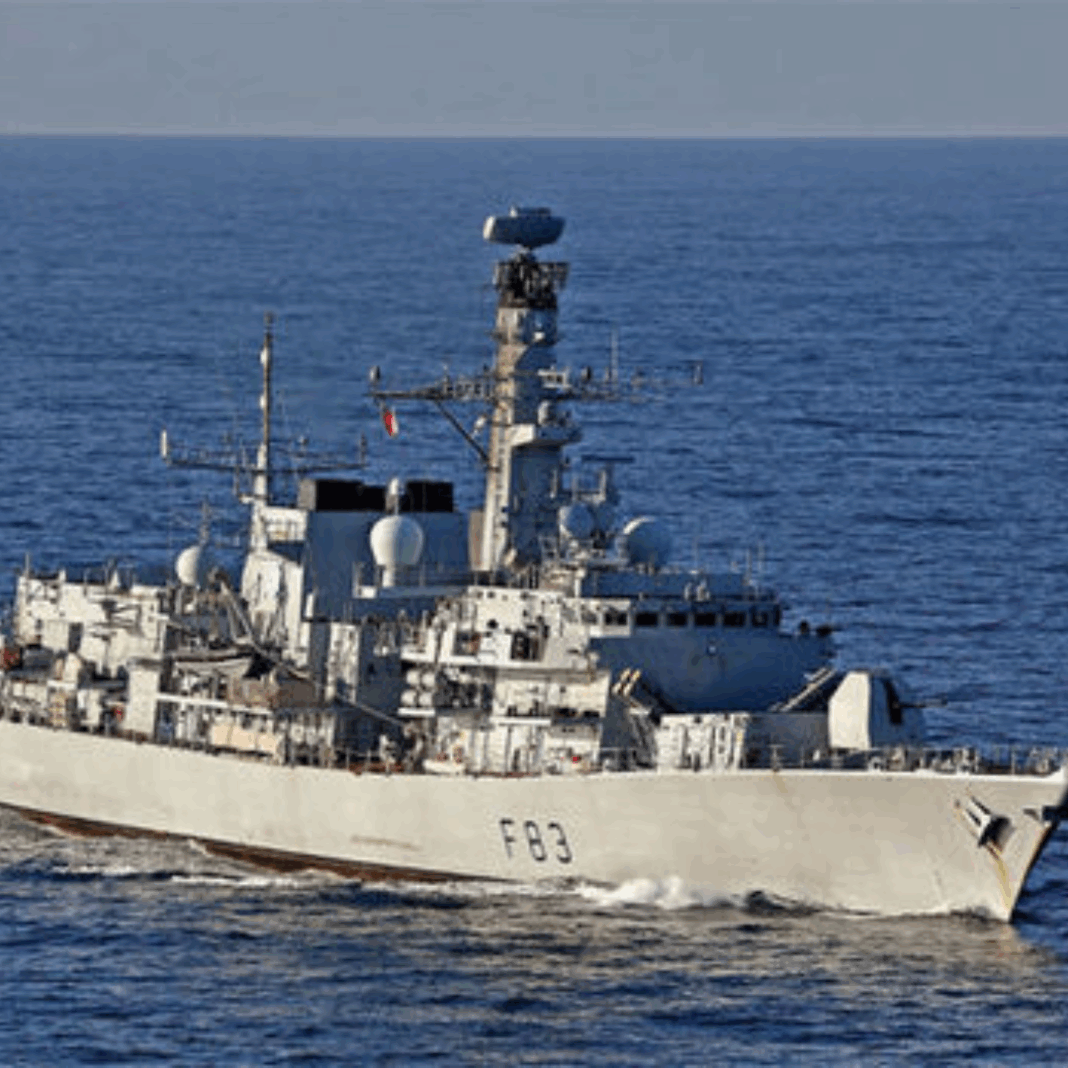The Royal Navy was put on high alert recently after a Russian frigate, named Admiral Golovko, was spotted moving through the English Channel. This was not just any ship — it was a powerful warship, part of the Russian Navy’s fleet, which was heading eastward. In response to the threat, the Royal Navy quickly deployed one of its own warships, the HMS St Albans, to monitor and escort the Russian ship as it passed through British waters.
The English Channel, a busy waterway, serves as a major route for ships traveling to and from Europe. Given its importance and the tensions between Russia and the West, the sighting of a Russian warship in the Channel was a serious concern. The Royal Navy’s goal was clear: ensure that the Admiral Golovko stayed on its path and left UK waters without causing any further issues.
A Close Watch from the Navy
As soon as the Admiral Golovko was spotted, the Royal Navy swung into action. The HMS St Albans, a Type 23 frigate based in Plymouth, was dispatched immediately to keep a close watch on the Russian vessel. The British warship closely shadowed the Admiral Golovko, making sure it did not stray into British territory or cause any disturbances.
To ensure everything went smoothly, the Royal Navy also sent a Merlin helicopter into the skies. This helicopter’s job was to track the Russian frigate from above, providing the Navy with detailed information about the ship’s movements. This allowed the Navy to keep an even closer watch on the situation and ensure they had the upper hand.
The HMS St Albans’ crew showed their expertise and professionalism throughout the operation. They worked together efficiently, making sure they could react quickly to any change in the situation. This was not the first time that the Royal Navy had to carry out such an operation. Just a few weeks earlier, the same warship had been called into action to monitor another Russian ship. The HMS St Albans is always prepared for situations like this, and the crew’s dedication to keeping the nation safe was clear in this mission.
Scarborough Shoal Waters See Chinese Navy Warning After Philippine Frigate Enters
NATO Takes Over in the Mediterranean
As the Admiral Golovko made its way through the English Channel and out of UK waters, the responsibility for monitoring the ship was handed over to NATO allies. Once the Russian frigate entered the Mediterranean Sea, other allied nations took over the task of escorting the vessel through their waters. This coordination between the Royal Navy and NATO allies is essential in maintaining peace and security in international waters.
The role of NATO in this operation was vital, as the alliance includes many of the world’s most powerful military forces. Working together, NATO members ensure that any military activities, especially those involving potential threats, are closely monitored and managed.
This operation was not an isolated incident. Only a few weeks before, another Russian warship had been tracked by the Royal Navy. The HMS St Albans had also been deployed to shadow the Stoikiy, a Russian corvette, as it moved through the Channel. Such operations are becoming increasingly common, as Russian activity near the UK has been noticeable in recent months.
The Royal Navy’s ability to track and respond to these movements, often with the support of NATO allies, plays a crucial role in ensuring that UK waters remain safe and secure. The Navy’s modern warships, advanced radar systems, and helicopters give them the tools they need to effectively monitor and respond to any threats.
China’s Eye in the Sky? U.S. Accuses Satellite Firm of Fueling Houthi Attacks on Navy Warships
In another similar case earlier in the year, the Royal Navy’s HMS Somerset was tasked with shadowing a Russian warship, the Boikiy, which was escorting a sanctioned cargo ship. This event, too, saw the use of helicopters and close cooperation with NATO forces, showing the ongoing vigilance of the Royal Navy in safeguarding UK waters.
These operations remind the public of the important role the Royal Navy plays in protecting the UK. It’s not just about defending the country from potential threats — it’s also about maintaining peace in international waters, where ships from many different nations cross paths. Whether it’s a routine patrol or a high-stakes interception, the Royal Navy is always prepared to respond when needed.

